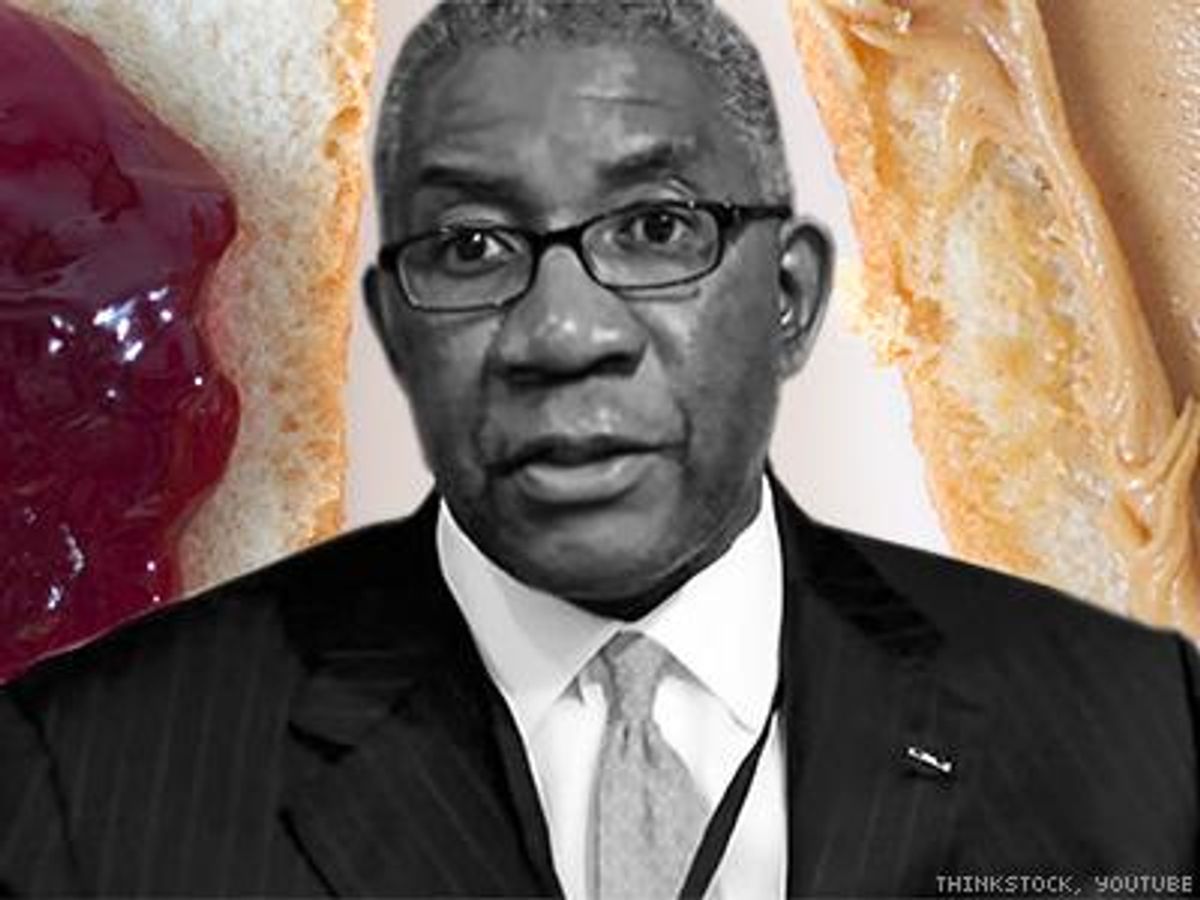Buried in yesterday's ruling on Arkansas marriage equality is a strange explanation of the definition of the word "and," along with a commentary on the merits of peanut butter and jelly sandwiches.
At issue in the case is whether Arkansas officials must recognize roughly 500 same-sex marriages performed last year during a brief window when clerks were allowed to issue marriage licenses to same-sex couples. Judge Wendell Griffen ruled that the licenses are, in fact, valid. But his ruling used unusually strong language, calling a previous pro-equality ruling "courageous and plainly stated."
In contrast, Griffen wrote, the state's arguments against recognizing the marriages are "logically absurd and fundamentally unjust."
Griffen particularly singled out Arkansas Department of Finance and Administration Director Larry Walther for criticism. Walther had argued that a legal technicality known as "Rule 60(a)" prevented the state from recognizing the licenses.
"With shameless disrespect for fundamental fairness and equality, Director Walther insists on treating the marriages of same-sex couples who received marriage licenses between May 9 and May 15 as 'void from inception as a matter of law,'" Griffen wrote. "This Court categorically rejects Director Walther's manifestly inaccurate and tortured mis-interpretation of Rule 60 of the Arkansas Rules of Civil Procedure. lf the position Director Walther asserts would not produce a 'miscarriage of justice' as that term is understood within the meaning of Rule 60(a), the words 'miscarriage" and 'Justice' have no meaning."
Griffen also quoted former U.S. Supreme Court Justice Hugo Black, who wrote, "Courts ... stand as havens of refuge for those who might otherwise suffer because they are helpless, weak, outnumbered, or ... non-conforming victims of prejudice and public excitement."
But the most memorable section of Griffen's pro-equality argument involves sandwiches. The 500 same-sex couples who married were able to do so because another court had issued a correction to a previous ruling, which Walther claimed was unauthorized because Rule 60(a) does not distinguish between "clerical mistakes" and "errors therein arising from oversight or omission."
But that's simply not true; the law clearly differentiates between mistakes and errors. Griffen had no patience for Walther's confusion, and took the opportunity to explain to him in excruciating detail how the word "and" works:
Elementary school grammar students are taught and know that the word "and" is a conjunction, meaning that it functions in grammatical usage to connect separate ideas, concepts, and realities. For example when one uses the term "peanut butter and jelly, anyone who knows anything about peanut butter and jelly understands that two very different foods are mentioned. Peanut butter is not jelly. Jelly is not peanut butter. They may be on the same slice of bread to constitute tasty ingredients for a sandwich. That fact, however, does not make them one and the same.
"The same reasoning must be applied to the language in Rule 60(b)," Griffen concluded. "'Clerical mistakes' and 'errors ... arising from oversight or omission' are not the same things. They are different realities (like peanut butter and jelly)."













































































Fans thirsting over Chris Colfer's sexy new muscles for Coachella